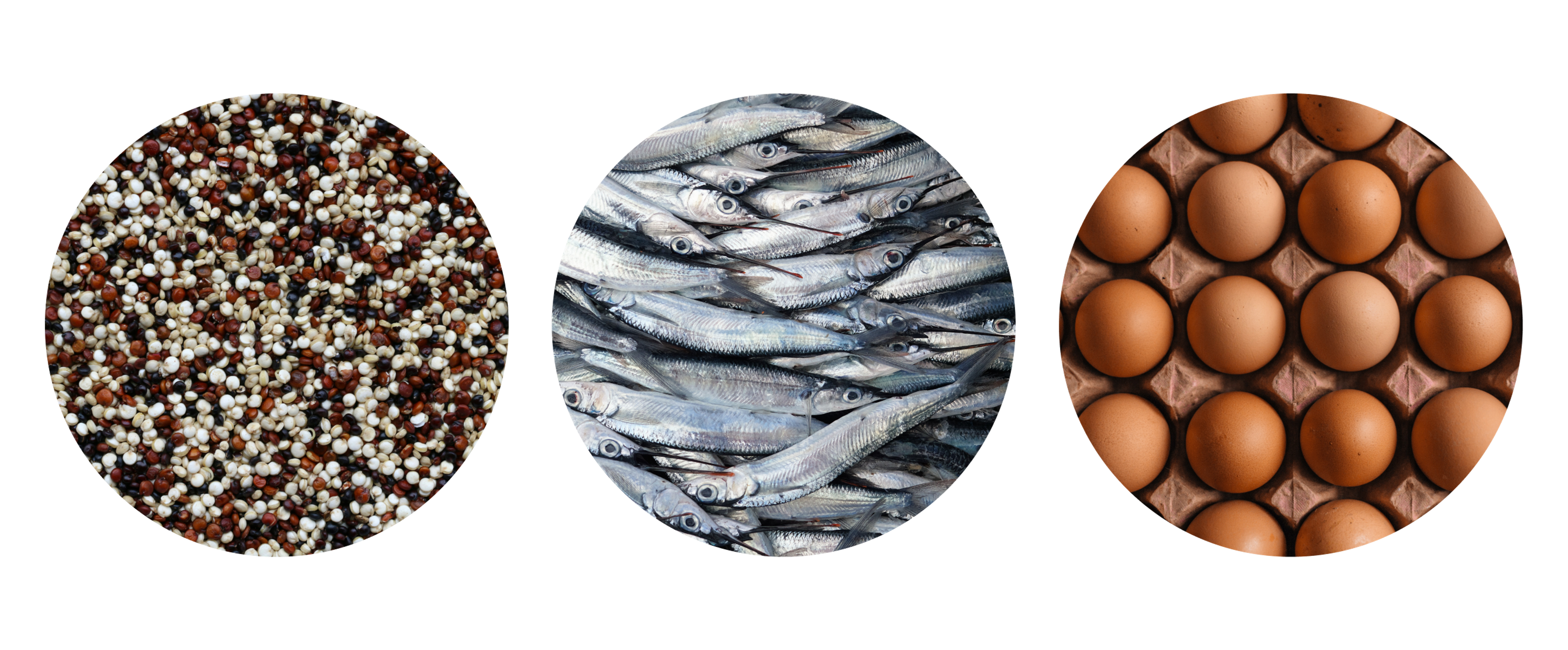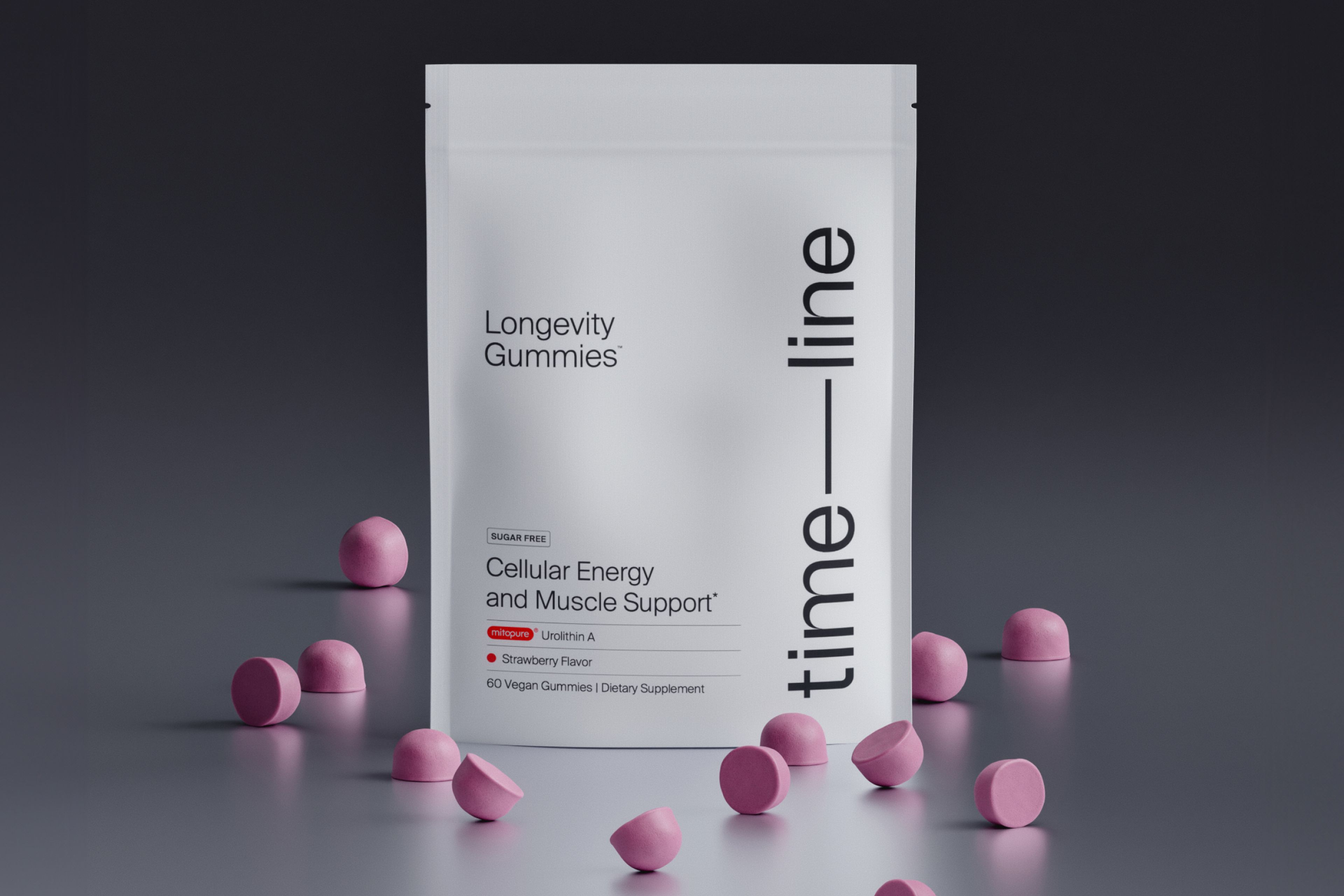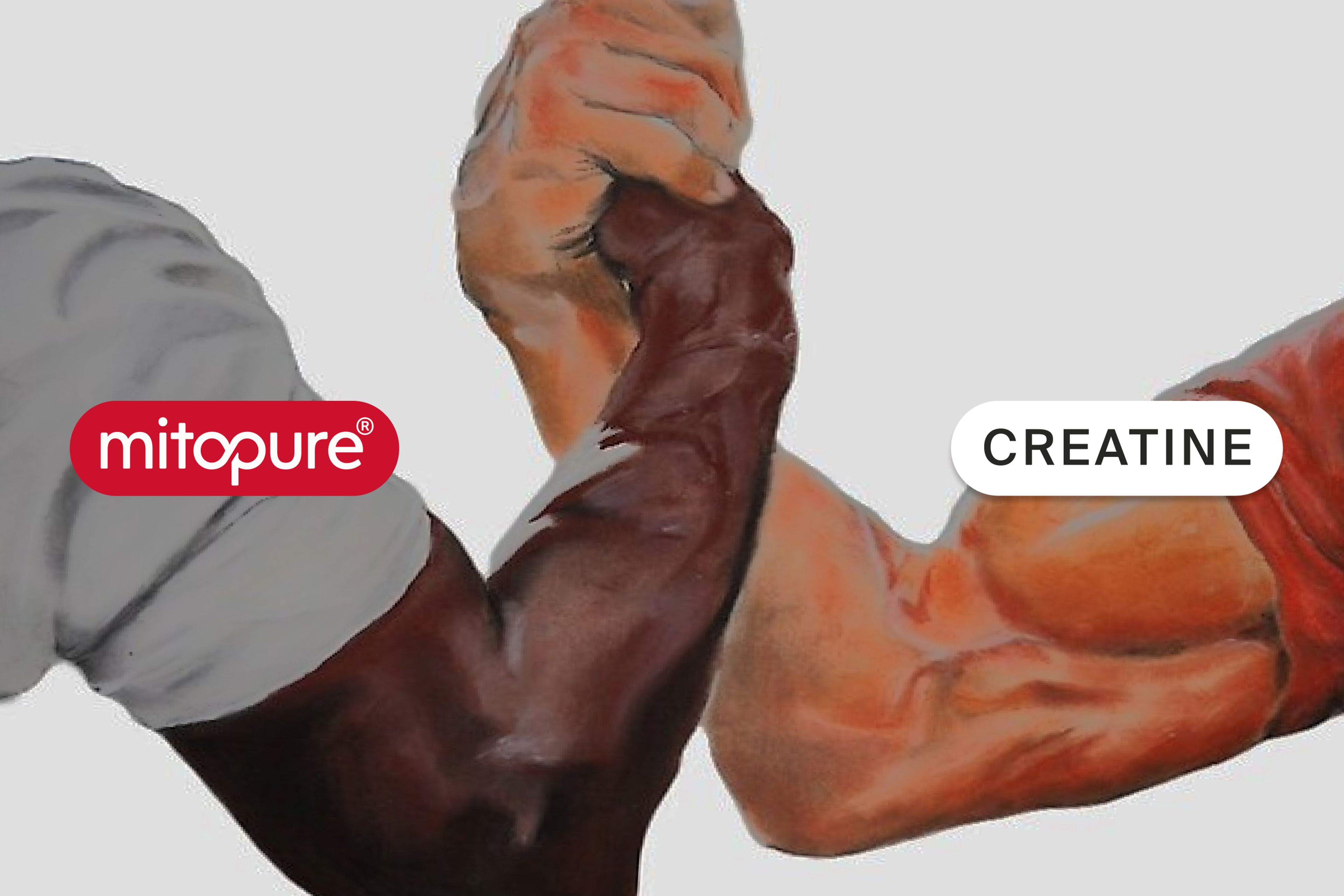Amino acids for muscle growth - proteins for mighty gains
If you’re looking for muscle growth, taking amino acids can help. Learn the essential vs nonessential amino acids and their muscle-boosting benefits.

What to know
Protein is made up of amino acids, the building blocks for muscle growth and recovery.
There are 20 amino acids, divided into 9 essential (ones that you need to consume in your diet) and 11 non-essential (ones your body makes in certain amounts).
All 9 essential amino acids must be present in the muscle for muscle growth to occur.
A food that contains all 9 essential amino acids is called a complete protein. A food with less than the 9 essentials is called an incomplete protein. You can combine incomplete proteins in your diet to make a complete protein.
Upping your calorie and protein intake and incorporating supplements like Mitopure® and whey protein can supply the essential amino acids your muscles need to grow combined with Urolithin A to boost muscle strength and endurance.
If you’re a fitness enthusiast, you’re probably aware of the importance of protein for building muscle and workout recovery. You may think of protein as a whole, but it is made up of individual building blocks called amino acids that individually work to help you meet your fitness goals.
Understanding the types of amino acids for muscle growth to focus on can help you reach your peak fitness potential. In addition, keeping the mitochondria, the energy center of your cells, in tip-top shape can play a key role in athletic performance.
Keep reading to learn about muscle-building amino acids and how much protein and calories your body needs for muscle growth.
What are amino acids, and why do we need them?
Amino acids are often dubbed the 'building blocks' of life, and for good reason. These organic compounds lay the foundation for proteins, which play a critical role in nearly every cellular process in our bodies and support muscle growth. But what exactly are amino acids, and why are they indispensable to our health and vitality?

Some commonly consumed complete proteins: Quinoa, fish or eggs
Essential vs. non-essential amino acids
There are 20 amino acids, and they can be classified as either essential or non-essential. Essential amino acids, or EAAs, are ones that you need to consume in your diet, [1]as your body doesn’t make them. On the contrary, our body can produce nonessential amino acids, so we don’t need to necessarily consume them in large quantities.
There are 9 essential and 11 non-essential amino acids. The amino acids of most importance when it comes to muscle building and resistance training are essential amino acids, since all 9 essentials need to be present in order to build muscle.
But we don’t eat just amino acids, we eat food! You may have heard of complete and incomplete proteins. When you’re looking at complete vs. incomplete proteins,complete proteins include all of the essential amino acids (protein-building blocks) our body needs for muscle growth, while incomplete proteins do not.
Most complete proteins are animal products, but some plant sources can be complete proteins as well. Commonly consumed complete proteins include:
- Fish
- Poultry
- Eggs
- Dairy
- Beef
- Pork
- Soy
- Quinoa
Combining various incomplete proteins in your diet can make a complete protein, which is one way to meet protein needs. However, it takes larger volumes of the incomplete proteins to meet your total protein needs. This is why many vegans and vegetarians may struggle to meet their daily protein intake for muscle growth.

Protein needs for muscle building
Now that you have a better understanding of what amino acids are and what they do, let’s talk about how to ensure you get enough protein to effectively build muscle. First, you’ll need to know your baseline calorie needs, then you can figure out your protein needs.
Calculating protein needs
In general, the American Dietary Guidelines recommend protein intake should be between 10-35% of your daily calories.[1] To build muscle, your protein percentage should be on the upper end of this range.
Research shows at least 1.6 grams/kg/day and 0.4 grams/kg/meal is required to promote muscle gain.[2]
Here is a sample calculation on how to figure out your daily protein target to build muscle.
Here is an example for a 150-pound person:
- 150 divided by 2.2 = 68 kg
- 68 kg x 1.6 grams/kg = 109 grams protein/day
- 68 kg x 0.4 grams/kg/meal = 27 grams protein/meal
Best protein For muscle growth
The best protein foods for muscle growth include both complete protein and incomplete protein sources in the diet.
High-quality protein sources include fish, eggs, chicken, lean beef, shrimp, Greek yogurt, cottage cheese, tofu, whey protein powder, and milk are your best bets
Here are some of the top quality high protein foods and complete proteins to include in your meals:
- Salmon
- Eggs
- Chicken breast or thighs
- Tuna
- Greek yogurt
- Lean beef
- Shrimp
- Soy
- Turkey breast
- Cottage cheese
- Tofu
- Whey protein powder
- Milk
Include at least 1-2 sources of these proteins with every meal and snack to help meet your daily needs.
What about BCAAs?
You may have heard about branched-chain amino acids or BCAAs. These are three specific essential amino acids: valine, leucine, and isoleucine. They are often discussed in nutrition headlines because of leucine being a trigger for the muscle-building process, mTOR. However, BCAAs on their own cannot stimulate muscle growth, so the best option is to still eat whole foods that contain all 9 essential amino acids.
Bottom Line
Combining the rightamino acids for muscle growth with the proper number of calories can help you build more muscle, get stronger, and speed up recovery.
Authors

Dietitian-Nutritionist, and Health Content Writer

Reviewed by
PhD, RD CSSD
References
- ↑
USDA. (2020). Dietary Guidelines for Americans 2020 -2025 . https://www.dietaryguidelines.gov/sites/default/files/2020-12/Dietary_Guidelines_for_Americans_2020-2025.pdf (https://www.dietaryguidelines.gov/sites/default/files/2020-12/Dietary_Guidelines_for_Americans_2020-2025.pdf)
- ↑
Slater GJ, Dieter BP, Marsh DJ, Helms ER, Shaw G, Iraki J. Is an Energy Surplus Required to Maximize Skeletal Muscle Hypertrophy Associated With Resistance Training. Front Nutr. 2019 Aug 20;6:131. doi: 10.3389/fnut.2019.00131. PMID: 31482093; PMCID: PMC6710320.

•
Nutrition•
First-of-Its-Kind Longevity Gummy Launched

•
Skincare•






